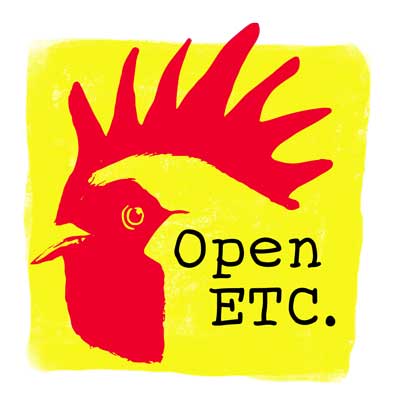by Anne-Marie Scott and Grant Potter

opened.ca
- Fostering Resiliency with Platform Cooperativism
- The Platform Economy
- The Platform University
- The Platform Cooperative
- Why platforms are important
- Sustainability & Governance
- OpenETC Thinking
- OpenETC Technologies
- Fostering Resiliency – eLearning Tutorials
- Fostering Resiliency – Learn and Teach Anywhere
- Supporting Collaboration
- Supporting Open Educational Practices
- Supporting Peer Production
- Questions?
Abstract
In response to the COVID19 pandemic, institutions across the world adapted their operations to move learning and teaching online. The vast majority of institutions did so by rapidly increasing their use of commercial technology, adopting digital education platforms that promised solutions and deliverance from complex problems. However, concerns have been raised about surveillance, ownership of data, and the extractive nature of the new “platform university” (Williamson, 2019). The extent to which the long-term impacts of this move have been fully considered (Williamson et al., 2020) is concerning, particularly for open education practitioners and those concerned with issues of equity and inclusion in education.
The Cape Town Open Education Declaration states that open education is not limited to OER, but “also draws upon open technologies that facilitate collaborative, flexible learning and the open sharing of teaching practices that empower educators to benefit from the best ideas of their colleagues.” (The Cape Town Open Education Declaration, 2007). In this reflective practice session we will outline an alternative to the commercial digital education platform; one which is built on open-source software, grounded in open educational practices, built with respect for issues of data ownership and surveillance, and owned by a public education sector.
Taking inspiration from the platform cooperative movement (Platform Cooperativism Consortium, n.d.), the OpenETC (Open EdTech Collaborative, 2017) has operated in British Columbia, Canada, on a “contributions not contracts” model since 2015 and is explicitly designed to build capacity rather than extract value, fostering new forms of relationality. The OpenETC also witnessed a considerable uptake in participation in 2020 as a result of the pandemic.
Through a series of examples, we will explain how opportunities for sharing, peer production, cooperation, and collaboration, combined with open-source web technologies forged networks of resilience amongst sector colleagues within the OpenETC during the pandemic, and sparked new interest in open educational practices going forward. Through discussion and Q&A this session will also offer an opportunity for participants to discuss how this real-world approach to platform cooperativism supports a responsive, sustainable alternative to vendor-driven platform ‘solutions’ for higher education.